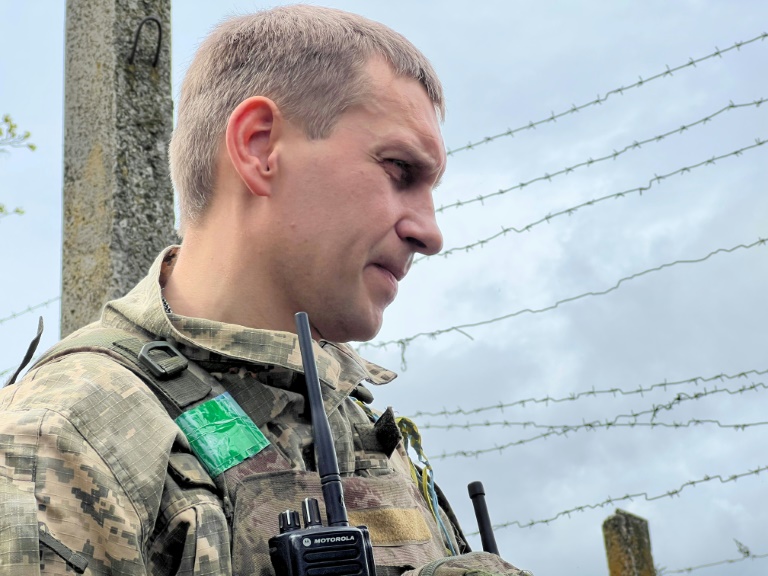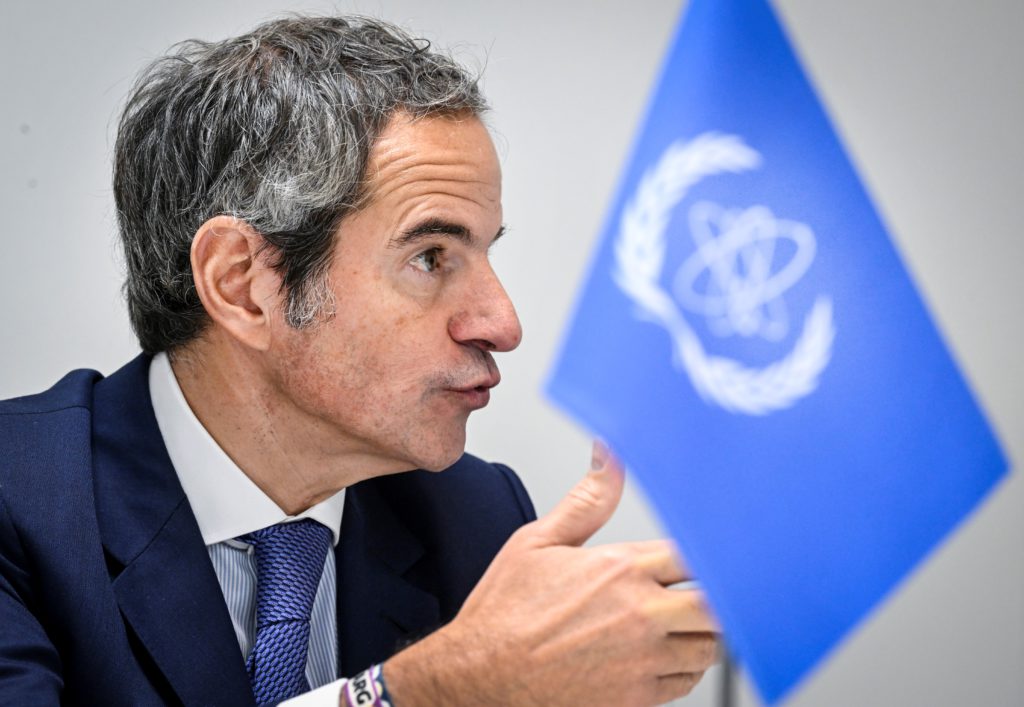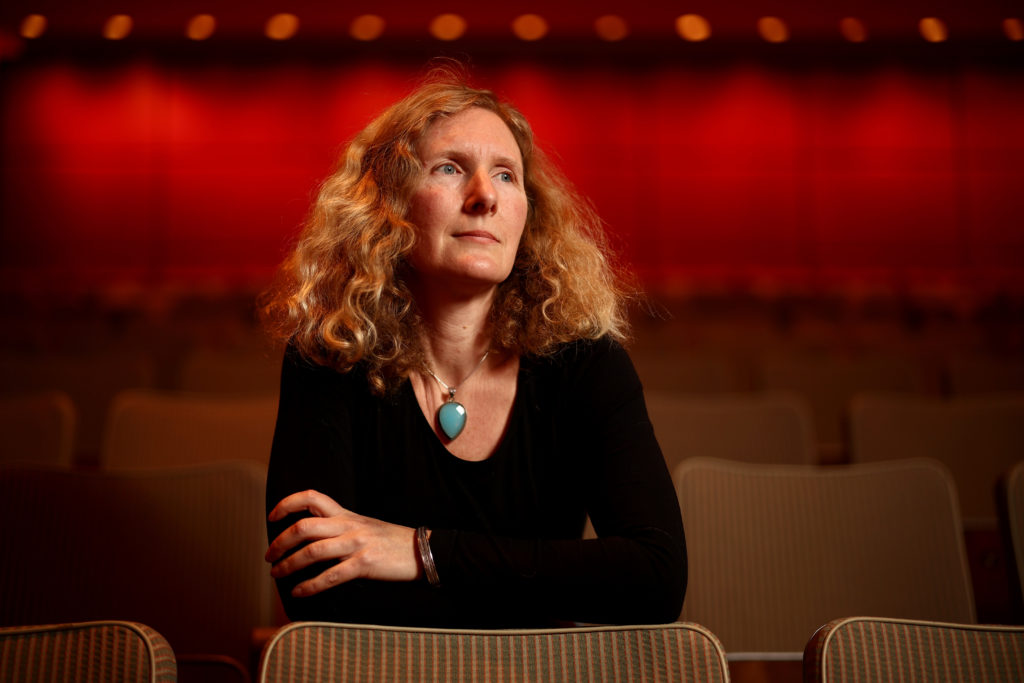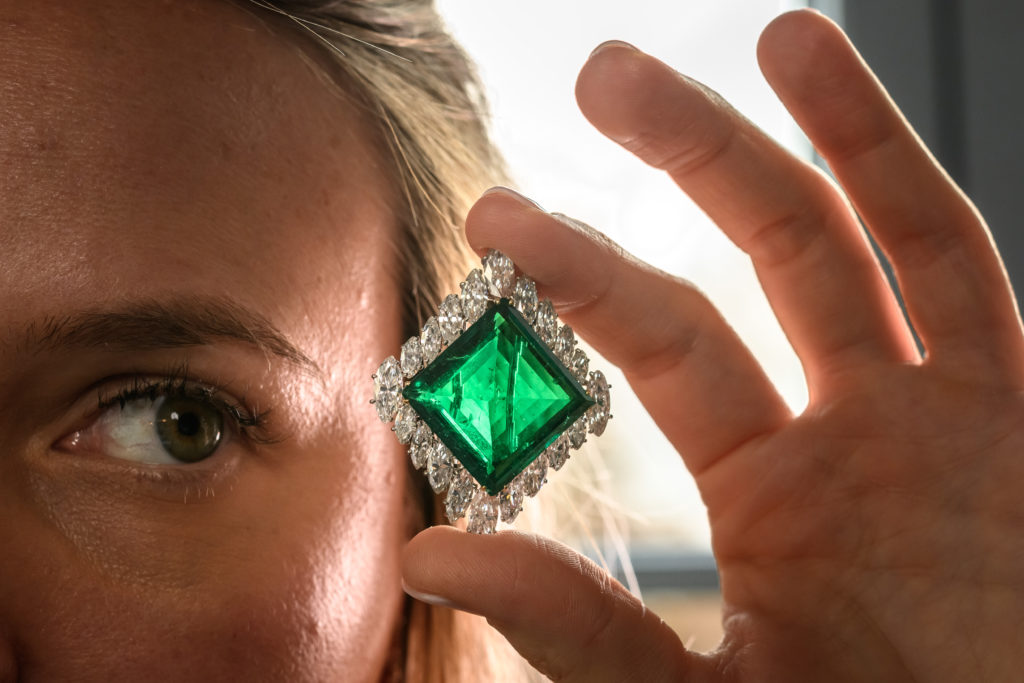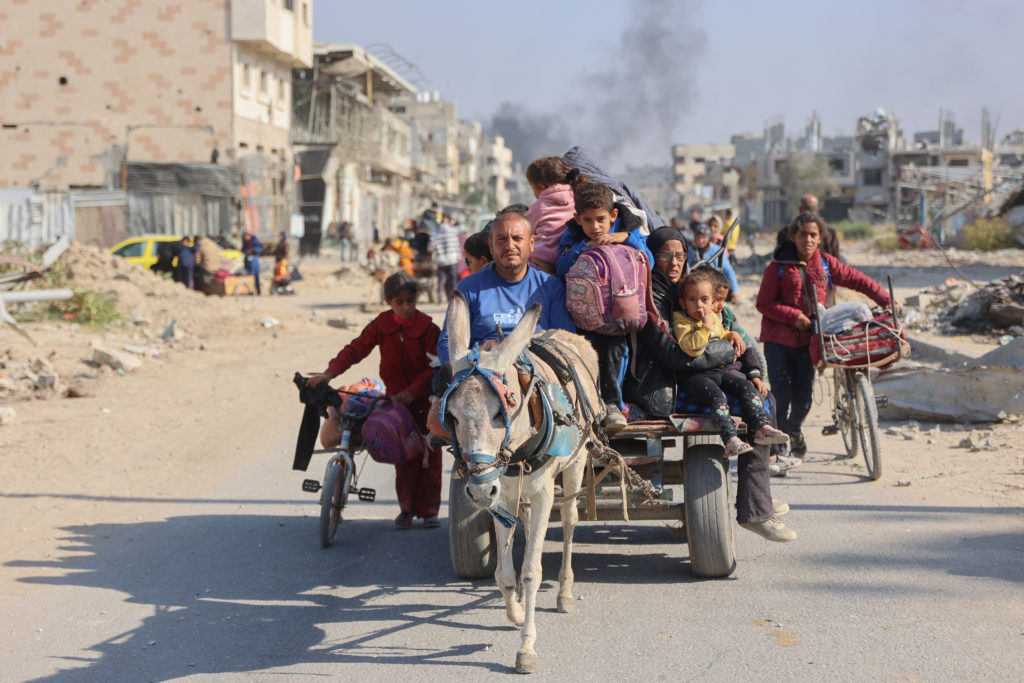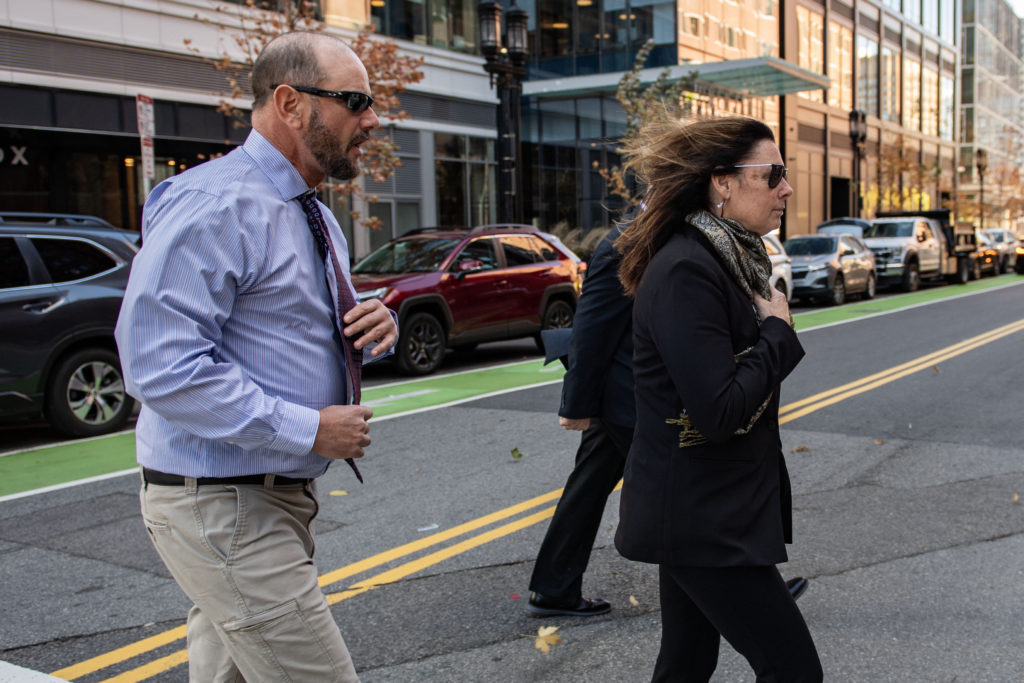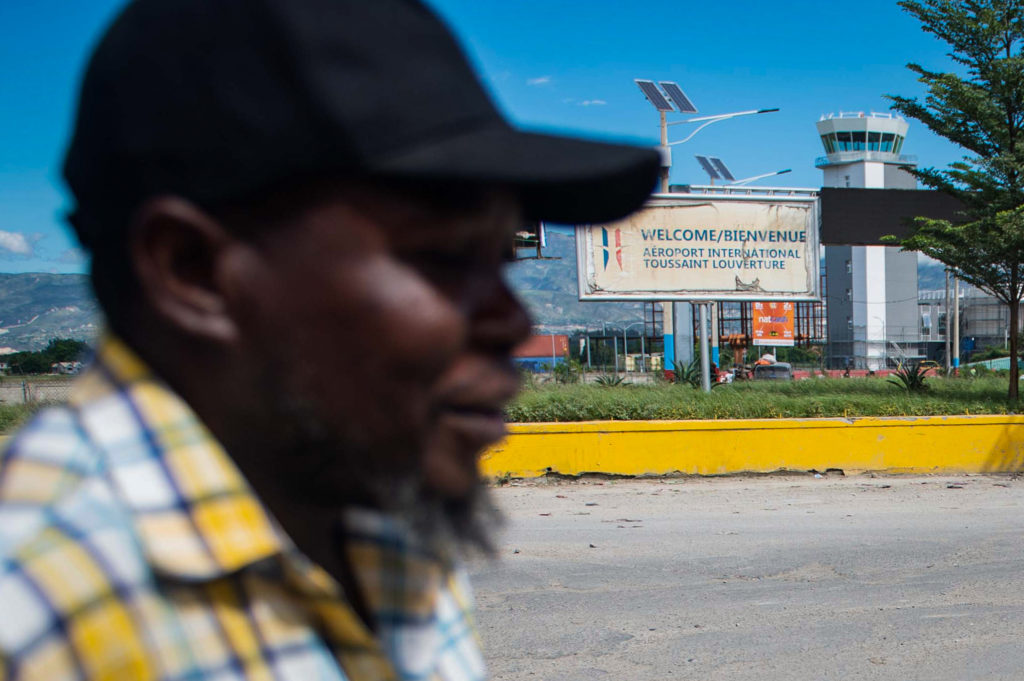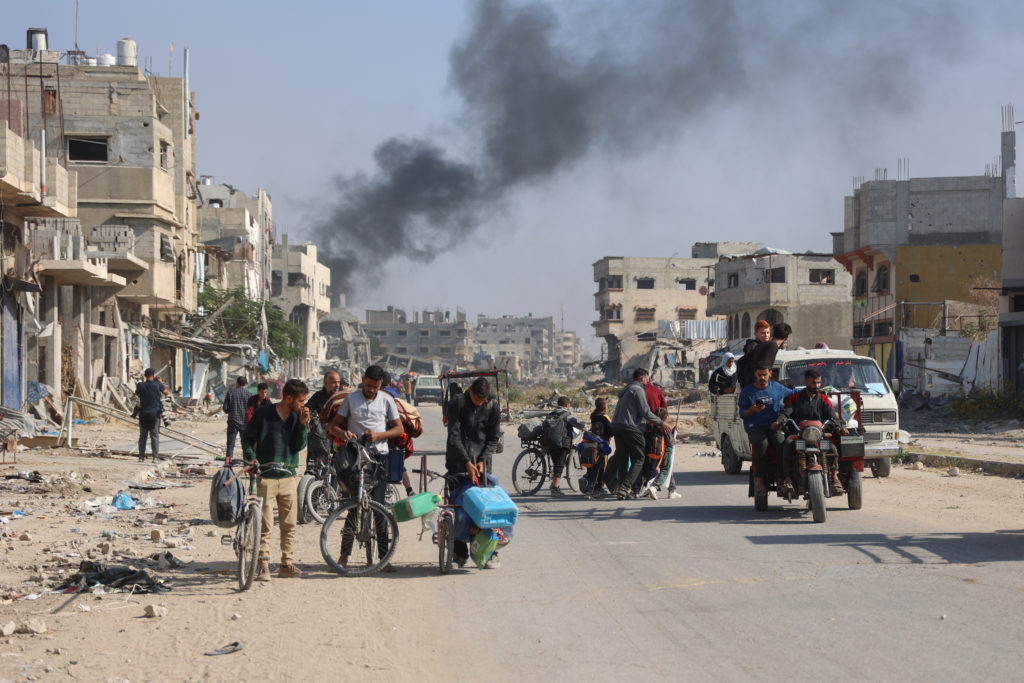From a muddied hideout on the edge of Kharkiv a Ukrainian officer peers at the horizon, tracing the Russian lines with his outstretched finger.
On the left, the land is in Ukrainian hands, he says. To the right, the Russians are dug in, hammering Ukraine’s second city with constant bombardment.
He stands at “point zero”: the spot where the two sides meet in combat.
“How long it will last I cannot say,” said Petro, a 42-year-old army captain.
“The enemy is entrenching, making a frontline, trying to gain a foothold.”
AFP was asked not to reveal the exact location or details of Ukrainian positions on a visit to the frontline outside Kharkiv on Sunday.
A group of soldiers live here, huddled in fortified positions surrounded by earth blemished by craters, under a silvery sky pregnant with rain.
They venture out only in small groups to dodge attention from Russian lookouts capable of calling in the strikes which thunder constantly in all directions.
Before the war Petro was a cabinet maker working in the neutral nation of Switzerland, and elsewhere in Europe.
Now the sandy-haired captain carries a hulking rifle with four magazines of ammunition strapped to his chest.
“We want, and we do, everything to destroy the enemy as soon as possible,” he said — surveying the scene where the fate of the Russian invasion is being decided.
– Deadly game of chess –
Russia ended its northern offensive at the end of last month, cancelling the push to take Kyiv and refocussing the campaign on Ukraine’s eastern flank.
Kharkiv — just 21 kilometres (13 miles) southwest from the Russian border — is now one of the cities standing in the way of the Kremlin’s advance.
On Sunday six people were killed by shelling on the central residential district of the metropolis, home to 1.4 million before the war prompted mass evacuations.
The missiles rained down in the moments after AFP departed “point zero”, where soldiers are finely attuned to the deadly difference between incoming and outgoing fire.
There is an odd sense of domesticity about the place. One man is bundled in a sleeping bag as another casually dismantles his rifle under a desk lamp, cleaning the parts ready for action.
In a makeshift kitchen the steam from a pot on a grimy stove casts surreal mottled shadows over patriotic children’s drawings sketched in yellow and blue, delivered to the soldiers to boost morale.
At a table furnished with a bowl of shredded carrots, a tin of condensed milk and a plate of butter daggered with a kitchen knife, the men hold forth about the nature of their work.
“War is like chess – who will outplay who,” explains a 39-year-old senior lieutenant who uses the call sign “Shamil”.
“There is no apparent logic” to Russia’s tactics he says. But still he warns Ukraine’s advances of recent weeks may be a result of a bluff, a strategic withdrawal.
“We don’t feel emotions or unnecessary hopes about this — our task is to push the enemy to the borders,” he said.
At the Ukrainian lookout post a soldier eyes the enemy lines with a monocular poked through a concealed slit.
As the men prepare to leave their shelter the Russians make their latest move. An incoming salvo lands too close for comfort.
They retreat to safety for a moment then journey out once again. It’s time to prepare their riposte.
– A long war –
As the war between Russia and Ukraine nears its third month, there is a sense that both sides are digging in for a brutal slugging match.
In fact, the conflict has been raging on a smaller scale since 2014 when President Vladimir Putin annexed the Crimean Peninsula and started backing separatists fighting in the eastern Donbas region.
Here in Kharkiv, Ukrainian forces are confident they can keep invading troops outside the city gates.
However whole neighbourhoods of the city have already been gutted by blasts.
Many of the remaining residents have retreated to underground metro stations to live half-lives, waiting out the war above.
A static staring contest will not relieve the city from the siege.
“The longer they stay in one place, the more they entrench, and the harder it will be to knock them out,” said a sergeant using the call sign Oreshek. “They have to be pushed back.”
“My fighting spirit is good — I am always ready to attack.”

